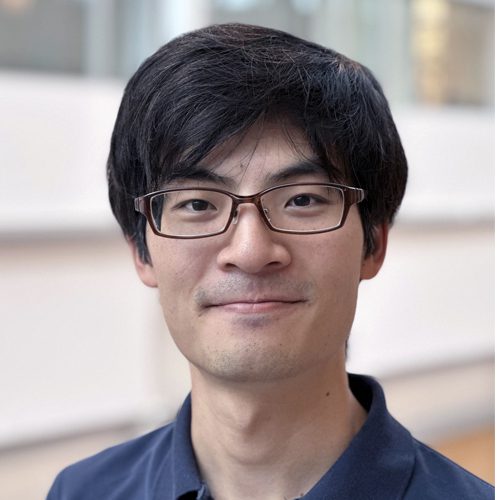
- Graduate Field Affiliations
- Applied Physics
- Physics
Biography
Research Interests
Our research lies at the intersection of condensed matter physics, nanotechnology, and quantum science. We are driven by the goal of creating novel quantum nanomaterials and functionalities through artificial heterostructure synthesis based on 2D materials. We are keen on engineering nontrivial topology and Berry curvature, investigating symmetry-broken states including unconventional ferroelectricity and magnetism, and designing strongly-correlated electronic systems that manifest exotic superconductivity. Details of the topics follow below:
Rational Design of Quantum Nanomaterials
The advent of van der Waals heterostructures and moiré superlattices has opened a pathway for rational design of artificial quantum materials. Our primary focus is on atomic-scale symmetry engineering, aiming to create symmetry-broken and strongly-correlated electronic states, which we characterize through low-temperature electrical transport and thermodynamic measurements. We intend to translate this physical assembly approach to underexplored 2D materials and free-standing thin films to create innovative nanomaterials.
Nanoscale Imaging and Manipulation
We employ various scanning probe microscopy techniques to visualize and manipulate the physical properties of materials, including moiré superlattices, chemical potential, ferroelectricity, and magnetism. We are also interested in developing a unique imaging tool that allows us to extract both real-space and momentum-space information about electronic systems.
Functional Devices and Application
Integrating quantum materials into devices enables functionalities that surpass the limitations of traditional semiconductors. Leveraging our expertise in nanomaterials synthesis and nanofabrication, we aim to prototype proof-of-concept devices for non-volatile information storage, neuromorphic computation, and quantum information processing.
- Condensed Matter and Material Physics
- Nanotechnology
- Semiconductor Physics and Devices
- Advanced Materials
- Energy Systems
Select Publications
-
K. Yasuda, X. Wang, K. Watanabe, T. Taniguchi, P. Jarillo-Herrero, “Stacking-engineered ferroelectricity in bilayer boron nitride.” Science 372, 1458–1462 (2021).
-
X. Wang*, K. Yasuda*, Y. Zhang, S. Liu, K. Watanabe, T. Taniguchi, J. Hone, L. Fu, P. Jarillo-Herrero (* equal contribution), “Interfacial ferroelectricity in rhombohedral-stacked bilayer transition metal dichalcogenides.” Nature Nanotechnology 17, 367–371 (2022).
-
Y. Tokura, K. Yasuda, A. Tsukazaki, “Magnetic topological insulators.” Nature Reviews Physics 4, 126–143 (2019).
-
K. Yasuda, M. Mogi, R. Yoshimi, A. Tsukazaki, K. S. Takahashi, M. Kawasaki, F. Kagawa, Y. Tokura, “Quantized chiral edge conduction on domain walls of a magnetic topological insulator.” Science 358, 1311–1314 (2017).
-
K. Yasuda, A. Tsukazaki, R. Yoshimi, K. Kondou, K. S. Takahashi, Y. Otani, M. Kawasaki, Y. Tokura, “Current-nonlinear Hall effect and spin-orbit torque magnetization switching in a magnetic topological insulator.” Phys. Rev. Lett. 119, 137204 (2017).
Select Awards and Honors
- MRS Postdoctoral Awards 2022
- Condensed-Matter Science Prize 2022
- Springer Theses Prize 2019
- President’s Award, University of Tokyo 2019
- JSPS Ikushi Prize 2019